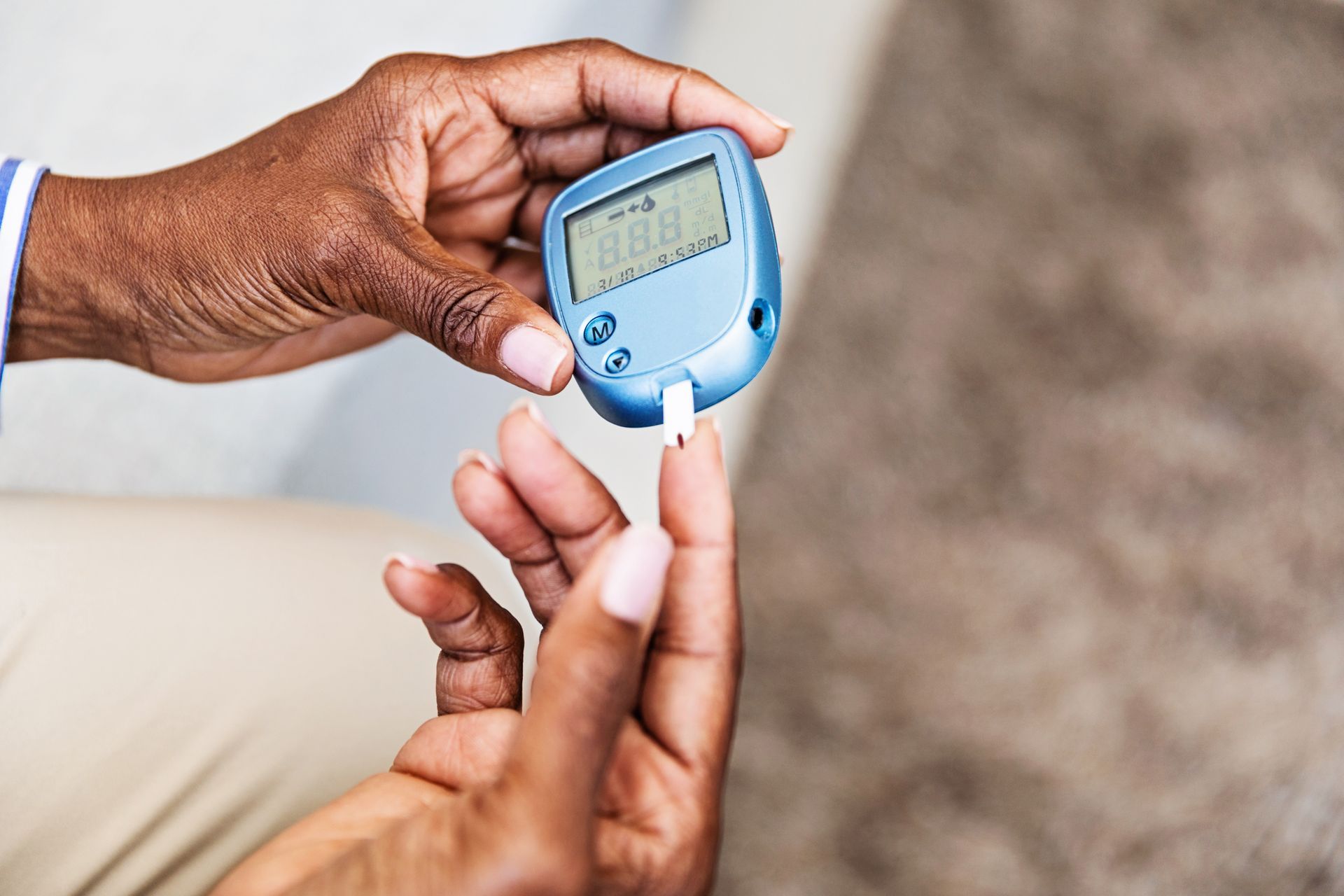Type 2 Diabetes

Managing Diabetes During Your Stay
Keeping your blood sugar under control takes careful attention. To help, make a diabetes care plan with your doctor or nurse. Include information like:
- How often to check your blood sugar
- How often to take your medicines and insulin
- What to do if you can’t eat
- How to handle your insulin pump if you have one
You may also want to ask a friend or family member to be your diabetes advocate. Together you can work with hospital staff to follow your diabetes care plan.
Tracking Your Blood Sugar
Measuring and tracking your blood sugar can give you valuable information about how your body’s working. It can also help you make adjustments if your numbers are generally too high or too low. The same is true when you’re staying at the hospital.
Being sick and taking new medications can cause your blood sugar numbers to go up or down. Ask your nurse if your blood sugar needs to be tested more often, and don’t be afraid to speak up if you think it’s been too long in between tests.
Taking Medication or Insulin
You’ll still need your medications and insulin (if you take it) while in the hospital, but do not take them yourself. Your nursing staff will give them to you. It’s possible for your medication schedule to change in the hospital. If your doctor or nurse hasn’t told you about a change, it’s okay to ask.
Insulin and Food
If you take rapid-acting insulin before meals, ask your nurse to help make sure you have your food before giving you insulin. Don’t let anyone give you rapid-acting insulin if your food hasn’t arrived.
Planning for Meals
Ask if there’s a special meal plan for patients with diabetes. You may also want to speak to the hospital’s dietitian. If your blood sugar is too high or too low during your stay, you may need special meals. A dietitian can help with this. And remember, if you need to take medication or insulin before your meal, make sure you’ve worked out a schedule with your nurse.
Avoid Infections
Having diabetes puts you at a higher risk of getting an infection, so it’s important to be extra careful during your hospital stay. Take the following steps to protect yourself:
- Ask everyone who comes into your room (staff and visitors) to wash his or her hands.
- Wash your hands before eating and after using the restroom. And ask for hand sanitizer to be placed near your bed.
- Remind your nursing staff to wear new gloves when they come into your room.
- Tell your nurse about any cuts, sores, or bruises you have.
- Ask friends and family who aren’t feeling well to stay home and not visit.
- Make sure you're up-to-date on all your vaccines, including flu, COVID-19, and pneumonia.
Know Your Care Plan
Before you leave the hospital, know how to care for your diabetes and get answers to these questions:
- Are any of your medications different?
- Are there symptoms to watch out for?
- How long will it take to feel better?
When to Call
If you have symptoms of high or low blood sugar, like being thirsty or feeling shaky, call for your nurse.

